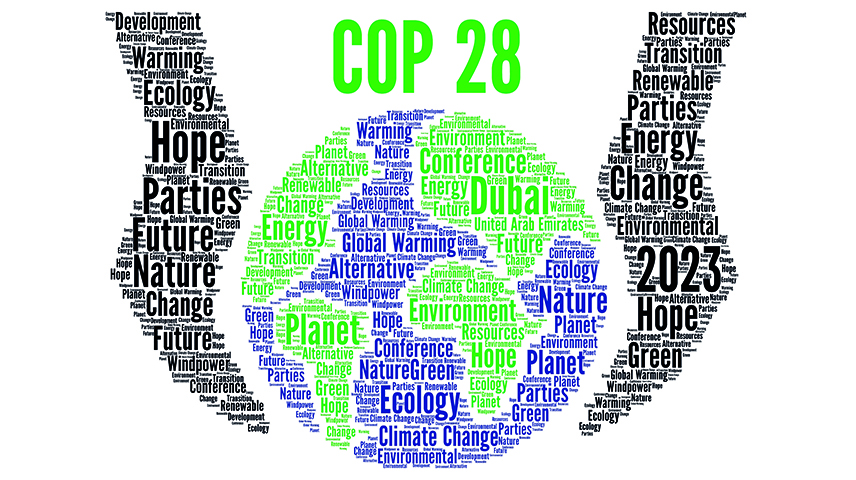Author: Howard Manzi
Climate change is the remarkable variation of average weather conditions becoming, for example, warmer, wetter, or drier—over several decades or longer. It is the longer-term trend that differentiates climate change from natural weather variability.
Climate change impacts can be manifested in three vulnerabilities, these are prolonged droughts, increased frequency of heavy rains, and rising temperatures.
Perhaps one of the far-reaching agreements that brought all nations into a common cause to undertake ambitious efforts to combat climate change and adapt to its effects, with enhanced support to assist developing countries to do so, was the Paris Agreement (PA) of 2015. The agreement covers climate change mitigation, adaptation, and finance. It enhances the implementation of the Climate Change Convention, aims to strengthen the global response to the climate change threat in the context of sustainable development and poverty eradication, through holding the increase in the global average temperature to well below 20C above pre-industrial levels and pursuing efforts to limit the temperature increase to 1.50C above pre-industrial levels.
Additionally, organizations such as the United Nations (UN) established bodies such as the UNFCCC, IPCC, UNEP, UNDRR, WMO, to lead the fight against climate change. This led to the foundation of funding entities such as GCF, GEF, AF, SCCF, LDCF to provide the much-needed finance to support climate change-related projects of the Parties to the UNFCCC. The 198 countries that ratified the convention can access climate finance through various means, and use it to mitigate or adapt to the impacts of climate change.
Developed country parties to the convention under the Paris Agreement made a commitment to support developing country parties so that they can achieve their emission reduction targets. To keep global warming to no more than 1.5°C – as called for in the Paris Agreement – emissions need to be reduced by 45% by 2030 and reach net zero by 2050.
Parties to the convention have met under the Conference of the Parties (COP) every year since 1995 when the first COP took place in Berlin, Germany. These UN Climate Change Conferences are yearly conferences held in the framework of the UNFCCC. They serve as the formal meeting of the UNFCCC parties to assess progress in dealing with climate change, and to negotiate the Kyoto Protocol to establish legally binding obligations for developed countries to reduce their greenhouse gas emissions.
At these conferences, climate change negotiators from each nation under the convention deliberate, discuss, and take decisions on how best to tackle climate change, and review the progress made so far. The working tools for the negotiations are negotiating texts, based on written proposals submitted by governments. At the end of a negotiation, the Chair of a meeting will bang his or her gavel to declare that a decision, or a new treaty, has been adopted. By the end of 2019, the Parties had taken more than 763 formal decisions aimed at implementing the UNFCCC, the Kyoto Protocol and the Paris Agreement. COP 28 will take place in the United Arab Emirates. The summit will be held at Expo City Dubai from November 30 until December 12, 2023.

Currently, there have been several climate change-related disasters that have led to millions of deaths around the world. On the vulnerability of increased frequency of heavy rains. There have been massive losses of life especially in the 2021 European floods (243 deaths), 2013 North India floods (6,054 deaths), 2010 China floods (3,189+ deaths), 2011 Southeast Asian floods (2,828+ deaths), 2010 Pakistan floods (1,985 deaths), Libya Storm Daniel floods (11,498+ deaths), 2022 Pakistan floods (1739 deaths), 2022 Africa floods (2,177 deaths).
On the vulnerability of prolonged droughts, African countries this year especially Ethiopia, Somalia and Kenya are experiencing the worst drought in four decades. The unrelenting drought has devastated the Horn of Africa and left more than 20 million people facing acute food insecurity. The 2011 East Africa drought occurring between July 2011 and mid-2012, was a severe drought that affected the entire East African region. Said to be “the worst in 60 years”, the drought caused a severe food crisis across Somalia, Djibouti, Ethiopia and Kenya that threatened the livelihood of 9.5 million people. Approximately 260,000 deaths were recorded in southern and central Somalia between October 2010 and April 2012 inclusive, of which some 52% (133,000) were among children under 5 years old.
Since October 2020, this part of East Africa, one of the world’s most impoverished regions, has been gripped by its worst drought in 40 years as an unprecedented five consecutive rainy seasons have failed. The drought has brought catastrophic impacts to large areas of Kenya, Somalia and Ethiopia: Tens of thousands of people have died due to malnutrition-related conditions, crops have shriveled, livestock have starved, and chronic hunger and water insecurity are widespread and growing.
On the vulnerability of rising temperatures, there have been other non-fatal disasters such as the 2023 heatwaves which began across parts of the northern hemisphere in April 2023, many of which are ongoing. Various heat records have been broken, with July 2023 being the hottest month ever recorded. July 2023 was the hottest July on earth in the last 120,000 years and the hottest July from the beginning of temperature measurement with a wide margin.
The increased temperatures are the culprit to the 2023 Canadian wildfires (currently 6,400 fires have burned 175,774 square kilometers, 6 people have died, and 155,856 people have been evacuated), the 2023 Hawaii wildfires (97+ persons dead, 2207+ buildings destroyed), and the 2019–20 Australian bushfire season (243,000 square kilometers burnt), which destroyed over 3,000 buildings (including 2,779 homes), killed at least 34 people, and additionally killed or displaced three billion animals – mammals, reptiles, birds, and frogs.
2023 is already the worst year on record for billion-dollar climate disasters in the U.S., a report from the National Oceanic and Atmospheric Administration (NOAA) said, as experts warn that extreme events are likely to become more frequent and intense unless drastic action is taken to curb human-driven climate change. All eyes are on COP28 in Dubai to come up with critical measures, decisions, and actions to prevent future devastating climate change impacts like those seen this year.
